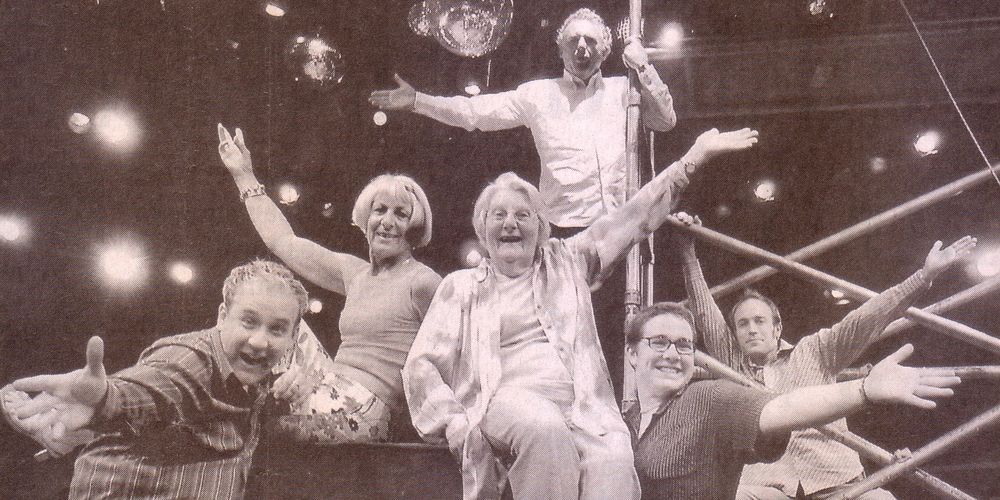The Joy of La Boite by Stephen Sewell
The Final Bow was a celebration to mark the closing of the Hale Street La Boite Theatre after 31 years of continuous performances.
Stephen Sewell, one of Australia‘s leading contemporary playwrights, was there to witness the event. His connection went back a long time: in 1978, La Boite mounted the first production of his play The Father We Loved on a Beach by the Sea (his first published work) and over the years produced three more of his plays. As part of his acceptance speech for an Australian National Playwrights' Centre Award in recognition of his major contribution to Australian Theatre (2004), he recalled “a recent experience I had which almost overwhelmed me with the beauty of our art”:
It was my pleasure some months ago to attend the last performance at the old La Boite theatre in Brisbane. As you probably know, La Boite is one of our most distinguished theatres, and the old theatre in Milton was one of Australia's most delightful and intimate stages. Unfortunately, La Boite was overwhelmed by the expansive ambitions of that other great theatre, the Lang Park football grounds, and has now retreated further up the hill, leaving the old building behind. As is our nature, this sad closure was marked by a celebration, in which an able team of wonderful Brisbane actors and directors recalled many of the theatrical moments enacted there. As someone who spent many happy years in Brisbane railing against bourgeois theatre, and indeed many of the plays whose time in La Boite was on that evening being recalled, I was struck as if by lightning by something which may be apparent to all here except, until recently, me, and what that was and is the utter humanity of our art, and the love and selfless devotion with which it is offered.
Nowhere on that evening in Brisbane was I encouraged to hate, to despise, to punish or to belittle; on the contrary, I was encouraged to take joy, to appreciate, to understand and to grow, and I realised sitting there that while there was much I feel we can all be critical of in the style and nature of each other's work, much that I think we should change about the kinds of plays we put on and the kinds of audiences we serve, we should also take courage in and celebrate the humanism which is the well-spring of our art. Humanism, yes, that great and noble enterprise asking us to recall that underneath all our many differences we share a fundamental humanity, and to take joy in that. To take joy in our bodies and the struggle of our spirits, to take joy in our strengths and to acknowledge and understand our weaknesses. To sense ourselves as creatures in the world, mortal, fallible, foolish and sometimes brave, and to embrace that humanity and love it; to love all human beings with a clear eyed knowledge of how diabolical we can so often be.
That is what I felt that evening as the lights went out on a fine and distinguished theatre in Brisbane not so long ago.
Stephen Sewell has written some of the most confronting and exhilarating Australian plays of the past thirty years. His multiple award-winning play Myth, Propaganda and Disaster in Nazi Germany and Contemporary America has been performed to acclaim, for its tough political comment, in Australia and the United Kingdom. He also writes for the screen and television.
Writer: Christine Comans

Tell us your story